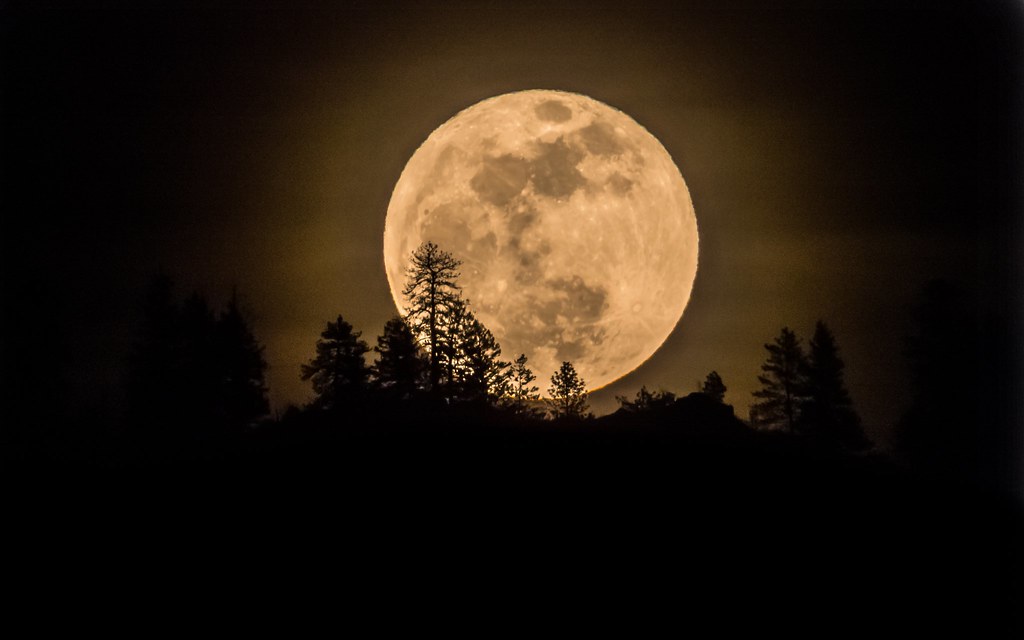About…
Moon in the Bible

Hebrew: יָרֵחַ —transliteration: yareach
Hebrew: לְבָנָה —transliteration: lebanah (Song of Solomon 6:10; Isaiah 24:23)
The Moon is frequently referred to in Scripture along with the Sun (Joshua 10:12; Psalm 72:5, 7, 17; 89:36-37; Eccl. 12:2; Isaiah 24:23, etc.), and also by itself (Psalm 8:3; 121:6).
The Moon was created by God on the 4th day of Creation, to be, with the sun, “for signs, and for seasons, and for days, and years” (Genesis 1:14-16).
A lunation was, among the Jews, the period of a month, and several of their festivals were held on the day of the new moon.
Worship of the Moon
The great brilliance of the Moon in Eastern countries led to its being early an object of idolatrous worship (Deuteronomy 4:19; 17:3; Job 31:26), a form of idolatry against which the Jews were warned (Deuteronomy 4:19; 17:3).
“Ur was consecrated to the worship of Sin, the Babylonian Moon-god. It shared this honor, however, with another city, and this city was Haran, or Harran. Harran was in Mesopotamia, and took its name from the highroad which led through it from the east to the west.
The name is Babylonian, and bears witness to its having been founded by a Babylonian king. The same witness is still more decisively borne by the worship paid in it to the Babylonian Moon-god and by its ancient temple of Sin.
Indeed, the temple of the Moon-god at Harran was perhaps even more famous in the Assyrian and Babylonian world than the temple of the Moon-god at Ur.”
They, however, fell into this idolatry, and offered incense (2 Kings 23:5; Jeremiah 8:2), and also cakes of honey, to the Moon (Jeremiah 7:18; 44:17-19, 25).
Moon gods include…
More information
- Feast of the New Moon
- Sun
- Month
- Seasons
- Calendar
- Was the 4th day of Creation (when the Moon and Sun were created) 24 hours long? Answer
- Host of heaven
- About idolatry and false gods in the Bible
- Sin, the moon god
- Sin—wilderness
- Wilderness of Sin
- Ashtoreth
- Queen of heaven
- Anammelech
- What is Ur?
- Eclipse
- Lunatic
- ISLAM—What is Ramadan? Answer
- MIRACLE—The sun and moon stayed: (Joshua 10:12-14)
- Can we explain the “long days” of Joshua and Hezekiah? Answer
- CREATION—Order of the creation of the universe
- CREATION—Was the fourth day of creation twenty-four hours long? (creation of the sun, moon, and stars) Answer
- EVOLUTIONISM—Have scientists discovered the moon’s origin? Answer
- EVOLUTIONISM—Has the origin of the solar system been determined? Answer
- FLAT EARTH—Did Bible writers believe the Earth was flat? Answer
- GALILEO—What were Galileo's scientific and biblical conflicts with the Church? Answer
- Answers to astronomy Creation vs. Evolution questions
- THE OCCULT—What does the Bible say about it? Answer